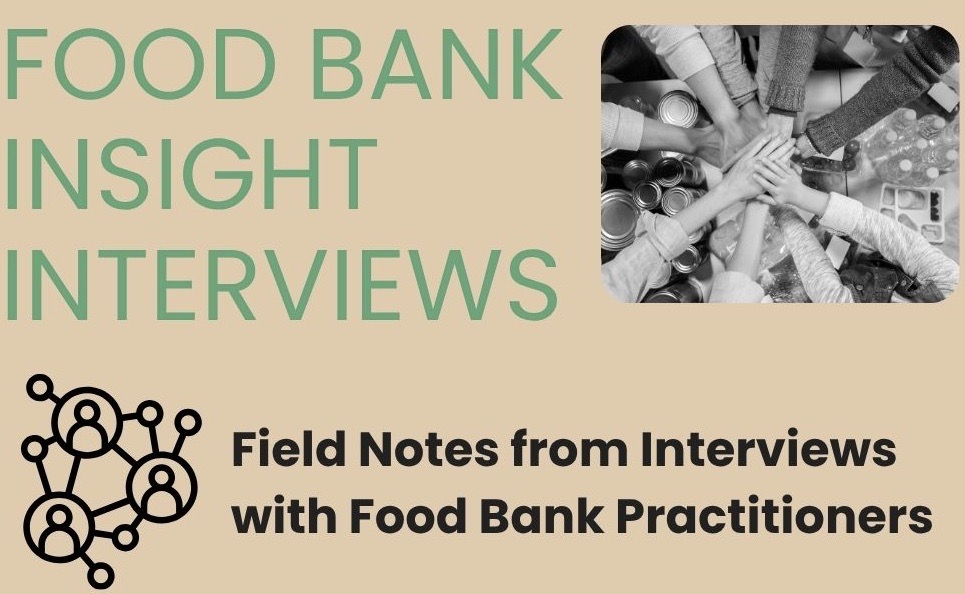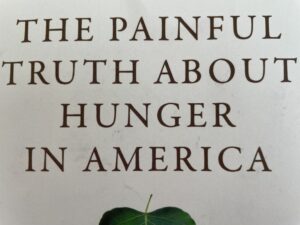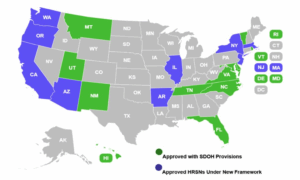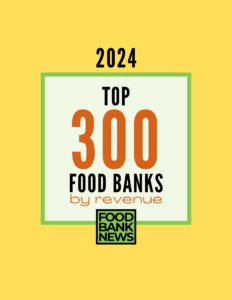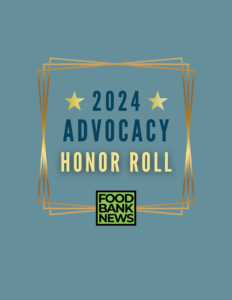GUEST POST BY AMY HAYNES, FACILITATOR, COACH, SOCIAL WORKER – In the face of rising demand, fluctuating resources and systemic change, food bank leaders are leaning into innovation and reimagining what’s possible.
Those are the conclusions of a series of interviews conducted with eight seasoned food bank leaders, each bringing an average of 14 years of service. Their insights – summarized into the three major themes listed below – reflect both the urgency of the current moment and the immense possibilities ahead. Our findings:
1/ The Landscape Has Changed – and It’s Not Going Back
The traditional model of food banking is undergoing seismic shifts. Leaders described massive disruptions in food sourcing, escalating costs due to inflation, and a volatile post-Covid funding environment. Meanwhile, new opportunities – such as the growing intersection of food and health and deeper engagement in root cause work – are demanding new approaches, new partnerships and new narratives to describe food banking’s work and impact.
One leader shared, “Our food stream has changed and our purchasing power has been cut in half because of inflation.” Funders are asking for long-term impact, and communities need more than food. They need a future, as well as the resources and support it takes to make meaningful changes in their life.
This presents an urgent challenge: How do we clearly communicate the value of food banks in this evolving landscape? How do we tell a compelling story that captures our role not only as distributors of food, but as critical players in community well-being, working hand-in-hand with a grassroots network? Food banking leaders identified a need for more and better storytelling, and better framing of the narrative around the activities and accomplishments of food banks.
2/ Success Requires New Measures
Food banks are being called to redefine what success looks like. Traditional metrics centered on pounds of food distributed no longer tell the full story. Today’s reality requires a more holistic, equity-centered approach – one that honors choice, dignity, relationships and information sharing.
Gideon Adams, Vice President of Community Health and Engagement at the Food Bank of Central and Eastern North Carolina, put it powerfully: “We need to be more relationship- and information-driven, not just data-driven. There’s a mental leap we must make – from focusing solely on efficiency to embracing empathy, customization, and deeper neighbor engagement.”
Understanding the lived experiences of neighbors and the nuanced needs of diverse communities is essential. This means investing in deeper engagement, listening more intentionally, and developing metrics that reflect impact beyond transactions.
3/ Innovation Isn’t Optional – It’s Necessary
With pressure mounting from all sides, food banks are being pushed to innovate – and many are rising to the occasion. This moment requires reimagining how food banks support neighbors, collaborate across sectors and care for the teams doing the work.
Susan Topping, Senior Director of Food, Policy and Impact at Capital Area Food Bank, shared: “We need to elevate our client interaction. How do we address staff burnout? How do we support a neighbor going through a difficult time? What’s our role in connecting to services beyond food?”
These are complex questions. Leaders see opportunities in deeper partnerships with social services, affordable housing, healthcare and more. Meeting community needs requires a holistic, thoughtful approach rooted in equity, relationships and local wisdom.
What’s next? These conversations make clear that now is the time for food bank leaders to learn with and from each other. As the landscape continues to evolve, peer support and reflective practice will be essential to the strength of food banking as a sector.
Here are two ways to get involved:
- A webinar being held Thursday, June 12 at 12pm CST, where we’ll share the full findings from this interview project, explore actionable solutions, exchange insights and strengthen our collective resilience in the face of ongoing change. Register here: bit.ly/foodbankworkshop.
- A Food Bank Community of Reflective Practice (CORP) being held this fall. Designed for food bank leaders to strategize and grow together, this virtual space will offer monthly sessions on a variety of topics beginning in September 2025 and run through the end of the year. Register here: https://bit.ly/foodbankcorp.
Like what you’re reading?
Support Food Bank News
